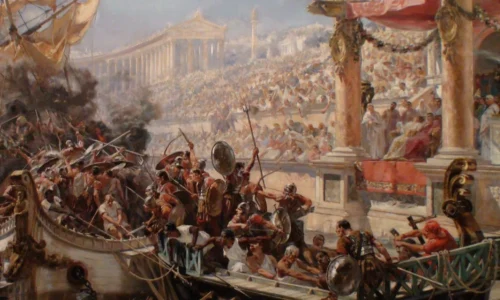
The Foundations of European Values: What Unites and Divides Us?
European values—rooted in democracy, human rights, and the rule of law—originate from ancient Greece and Rome, evolving through the Enlightenment and modern political institutions like the EU. However, cultural and historical differences shape their interpretation across Europe, with Western nations emphasizing liberal democracy and social policies, while Eastern nations often prioritize national sovereignty and traditional values. Religion, secularism, and approaches to multiculturalism further distinguish European perspectives. Compared to the US, Europe favors collective social welfare over individualism, maintains stricter environmental and labor regulations, and adopts a more secular public sphere. As Europe navigates challenges like migration and political divisions, balancing unity and diversity remains crucial to its future.
The Historical Roots of European Values: Democracy, Human Rights, and the Rule of Law
The values that define Europe today—democracy, human rights, and the rule of law—have deep historical roots stretching back to ancient civilizations. The democratic principles first emerged in Ancient Greece, particularly in Athens, where citizens had a direct say in governance. Although this early form of democracy was limited to a small group, it laid the groundwork for modern democratic ideals.
The Roman Republic further contributed to European values by developing a legal system that emphasized codified laws and civic responsibility. The notion of universal legal principles influenced later European legal traditions, including the Napoleonic Code and the foundations of modern constitutional law.
In the Enlightenment era, thinkers like John Locke, Jean-Jacques Rousseau, and Voltaire shaped European ideals by advocating for individual rights, government accountability, and the separation of powers. Their ideas influenced revolutionary movements in France and beyond, embedding human rights and democracy in the European political conscience. The 20th century saw the consolidation of these values through international institutions such as the European Union (EU), the European Court of Human Rights, and the adoption of the Universal Declaration of Human Rights.
How Different Cultural Traditions Shape Interpretations of These Values
Despite shared foundations, the interpretation and application of European values vary across the continent due to distinct cultural and historical experiences. In Northern and Western Europe, democracy is often associated with strong welfare states, liberal individualism, and secular governance. Countries like Sweden and the Netherlands emphasize social justice, gender equality, and civic participation.
Southern Europe, influenced by Catholic traditions, balances democracy with a stronger role for religion and traditional family values. Meanwhile, Eastern Europe, shaped by its history under Ottoman, Austro-Hungarian, and later Soviet rule, has developed a more cautious approach to democracy, often emphasizing national sovereignty and resistance to external influence.
The Contrast Between Western and Eastern European Perspectives
While the European Union strives to unify the continent under common democratic and legal principles, tensions exist between Western and Eastern Europe regarding governance, human rights, and political culture.
Western European nations tend to prioritize liberal democracy, progressive social policies, and multiculturalism. They often advocate for policies that expand human rights protections, support refugee resettlement, and promote inclusivity. Countries like Germany and France have been at the forefront of promoting EU integration and shared governance.
Eastern European countries, such as Hungary and Poland, have at times challenged certain EU directives, arguing that they conflict with national sovereignty and traditional values. Issues such as judicial independence, media freedom, and minority rights have sparked debates about the balance between EU oversight and national decision-making.
This divide is also reflected in attitudes towards Russia, NATO, and the role of the state in economic and social life. Eastern European countries, having emerged from Soviet control, often prioritize security and national identity, sometimes leading to more conservative policies than their Western counterparts.
A particular case concerns the ex-communist and ex-soviet countries that experienced a significant change of values, a transition from socialism to capitalism and democracy which created an atmosphere of considerable uncertainty. Some of the citizens perceived that the communism was providing certainty, the assurance that they will have a job, a house or that the currency will retain its value, in contrast with the sea of changes that came along with the new and fragile capitalism: inflation, big communist factories disappearing, the real estate market going wild. Therefore, despite of the fast pace of the economical development, each time a difficult period occurs, these countries are hit by a wave of nostalgia (mostly related to older people), focusing exclusively on the difficulties and loosing sight of the important benefits, like huge increase of the GDP per capita or freedom of movement.
Unfortunately, the day by day problems began to be exploited by populist politicians who promote antipluralism (”only we represent the people”), isolationism (national instead of international, European etc.), focusing on anti-UE and anti-NATO allegations.
The Role of Religion, Secularism, Multiculturalism, and Interculturalism
Religion has played a crucial role in shaping European values, but its influence varies across the continent. In countries like France, secularism (laïcité) is a foundational principle, ensuring a strict separation between church and state. In contrast, nations like Poland and Italy maintain a strong connection between religious traditions and public life, with the Catholic Church influencing social and political policies.
A particular case is displayed by the orthodox countries (Bulgaria, Romania, Grece, Cyprus) who share the same religion with Russian Federation. Although the state is laic in these countries, and the national orthodox churches are autocephalous, having a large degree of independence and western orientation, the vehicle of religion is used for propagandistic input by the Russian state, especially through online sources and through few isolated members of clergy.
Orthodoxy is used as propagandistic tool to spread and enforce commitment to the so called ”unique civilization and culture” patronized by Russia. Also, by intertwining the religious beliefs and the political discourse the message has a new and increased impact and appeals to people′s loyalty and fear for divine punishment.
This represents another item of diversity that can be turned into division, if let out of control and without rigorous religious and civic education that would make clear the difference between spiritual belief and manipulation or political ruthless monetization.
Multiculturalism and interculturalism represent different approaches to diversity in Europe. The UK and Sweden have historically embraced multiculturalism, allowing different cultural and religious communities to maintain their identities while coexisting within a broader societal framework. However, recent debates about integration and national identity have led some countries to reassess these policies.
Interculturalism, promoted particularly in countries like Spain and Canada (outside of Europe but influencing European discourse), emphasizes dialogue and interaction between cultural groups, aiming to create a more integrated society without segregating communities.
Differences Between the EU and the US in Terms of Values
While both the European Union and the United States uphold democracy, human rights, and the rule of law, their historical experiences have led to different interpretations of these values. The US emphasizes individualism, free-market capitalism, and limited government intervention, whereas the EU prioritizes social welfare, collective responsibility and regulatory frameworks.
For example, European countries generally offer universal healthcare, extensive labor protections, and strong environmental regulations, reflecting a more collectivist approach to governance. In contrast, the US system relies heavily on private healthcare, fewer labor protections, and a market-driven economy that values personal initiative over state intervention.
Another key difference is in attitudes towards multiculturalism and immigration. While both the EU and the US are diverse societies, the US has historically embraced a "melting pot" approach, encouraging assimilation into a single national identity. European countries, however, often favor a "mosaic" model, where cultural differences are preserved but integrated into a shared European framework. This has led to varying debates on integration policies, national identity, and social cohesion.
Additionally, attitudes towards the role of religion in public life differ significantly. While the US continues to have a strong religious influence in politics and public discourse, much of Europe has become increasingly secular, particularly in Western and Northern Europe. The principle of secularism is strictly enforced in France, while in the US, religious values often shape policy debates on issues such as abortion, LGBTQ+ rights, and education.
Conclusion
European values are deeply rooted in history, yet they continue to evolve in response to cultural, political, and social changes. While democracy, human rights, and the rule of law unite European nations, differing interpretations and historical experiences might create divisions.
As Europe faces challenges such as migration, populism, and geopolitical tensions, the ongoing dialogue between different traditions and perspectives will shape the continent’s future, balancing unity with diversity.
US also encounters critical issues connected to migration, and geopolitical tensions, but also a healthcare crisis and deficient labor protection, which are to be dealt with by the authorities. In such situations, populism is a natural consequence that might divert the attention of people and authorities, from positively solving the problems, to attractive, but false and harmful narratives.
The logical conclusion is common, despise the differences: both Europe and the US should stay focused on the real problems, search for real solutions together, strive for continuously improving the quality of peoples′ economic situation, education level, state of heath and deal consistently with the common security challenges. History teaches us that the amount of time when the two worked together was the most prosperous and peaceful of all, and a hardly possible resolution to act divergently would open the door to countless international consequence, not all of them good.















